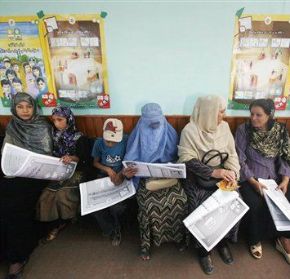Claims of fraud and victory have ringed throughout Afghanistan and in the international media since the first ballot was cast last week. Though the presidential election was deemed successful, yet far from perfect, by European and American officials, many feel that the election was too riddled with fraud to be considered legitimate. And though Karzai and Abdullah have both proclaimed victory, we are still far from knowing an official winner. So where exactly do we stand?

In terms of determining a winner, there is a bit more clarity than in figuring out the extent of voter fraud. The latest partial tally of votes shows incumbent Karzai with a slight lead over the main challenger Abdullah Abdullah, who has already claimed victory himself and been asked to concede by others. The way things are looking right now with 10% of the votes counted show that Abdullah really has a shot of at least forcing a runoff (a candidate needs over 50% to win outright). It appears Karzai has won 40% of the vote with Abdullah barely behind at 38%, close indeed. Complete, unofficial results are likely to be announced in two weeks, with the vote being certified around Sept. 17 after the commission completes investigating fraud allegations.
Judging the extent of corruption in the election is a much harder task. Jim Michaels of USA Today has a solid run down of the magnitude of official fraud claims and Martine van Bijlert at Foreign Policy shows examples of fraud from down on the ground (in the dirt?). According to Michaels, about 225 complaints have been filed with Afghanistan’s Electoral Complaints Commission, including 35 serious enough to sway the results if confirmed, by Sunday. An election official stated that they expect the number of complaints to reach the thousands. Though this sounds bad, and yes it is bad, the 2005 Provincial elections saw 1,500 complaints. Though this shouldn’t assauge any real fears or protest calls from those who feel they’ve been robbed (mainly Abdullah’s supporters), there is hope that the totality of these accusations does not put the legality of the election’s final results.
US envoy Richard Holbrooke voiced a similar sentiment: “We have disputed elections in the United States. There may be some questions here. That wouldn’t surprise me at all. I expect it, but let’s not get out ahead of the situation.” Though his comparison with American elections is laughable, I respect his efforts at bringing stability and caution to the process. From an American/international perspective, one has to be careful to push for transparency and legitimacy in the voting and counting process, while also not to appear to be meddling too much or allow things to get too out of hand for fear that civil unrest could turn into violent unrest. This is a thin line.